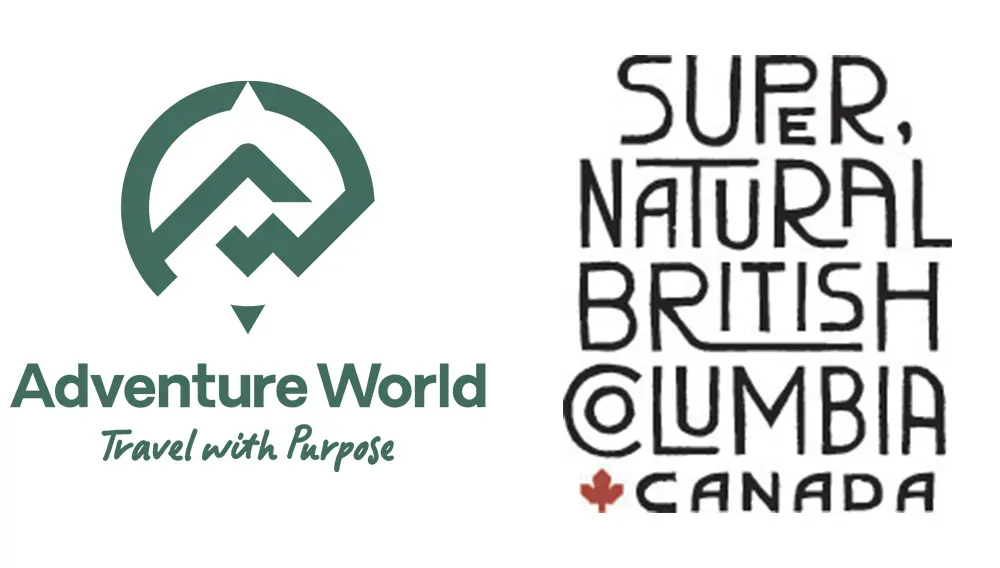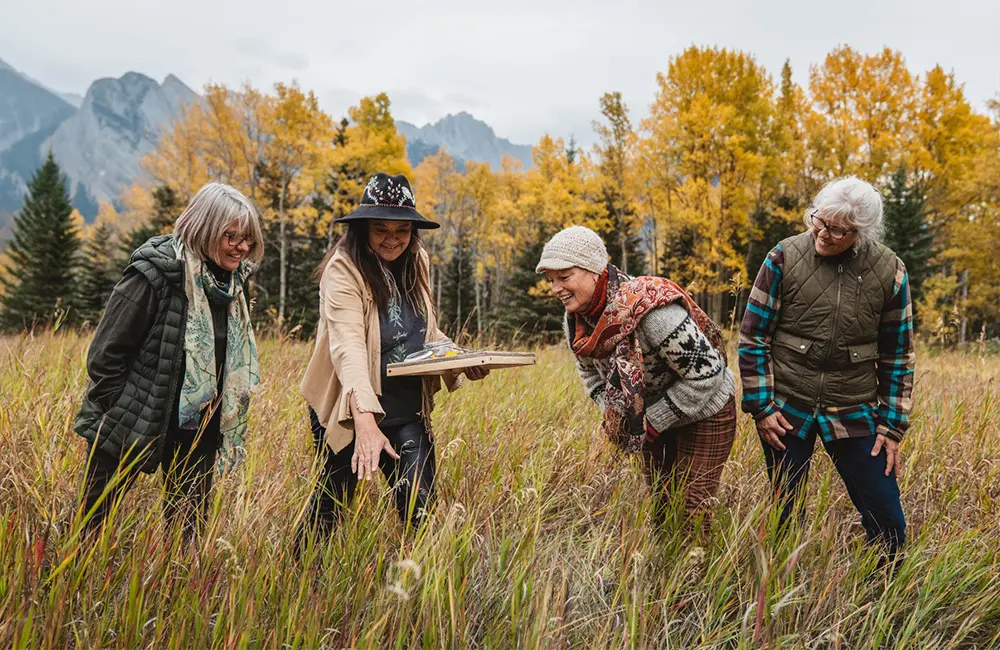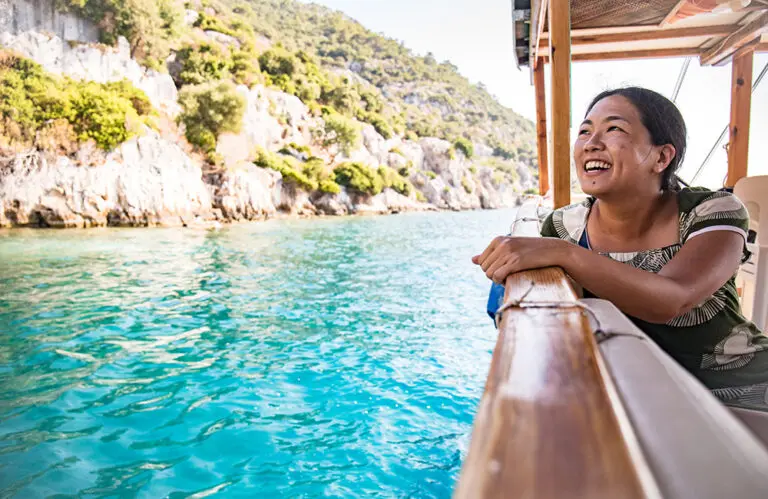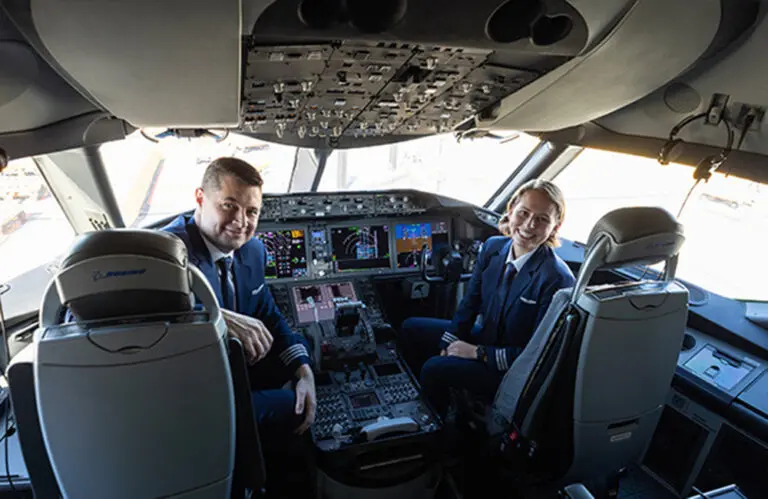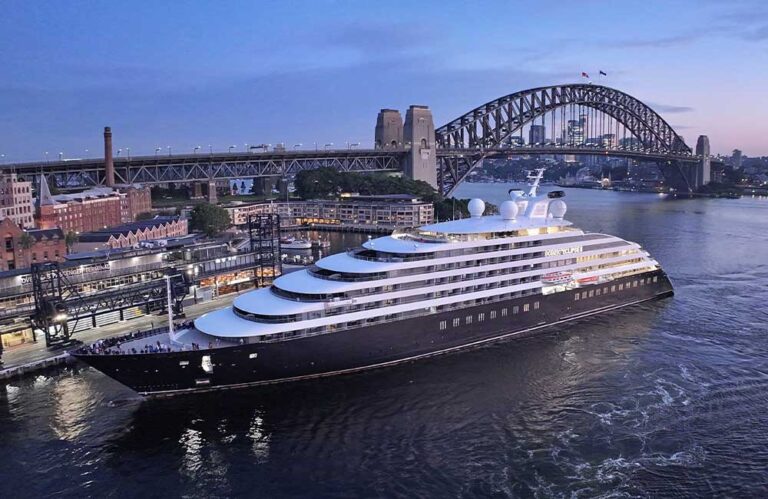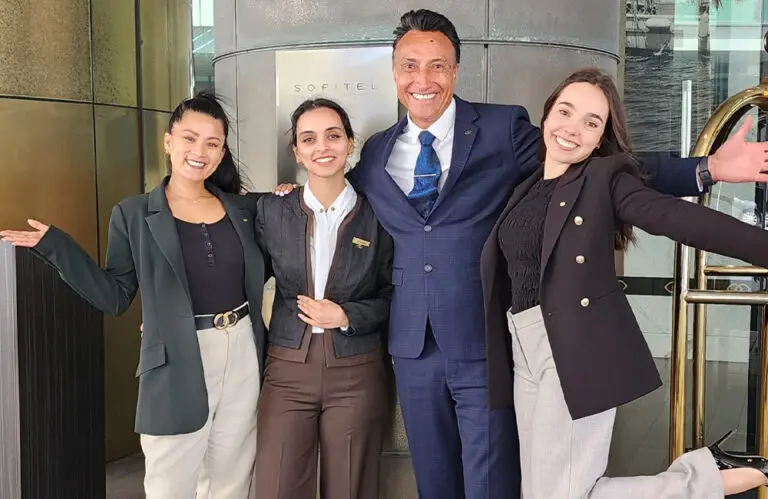How can travel professionals turn ‘travel for good’ from a buzzword into real impact—for their clients, their businesses, and the destinations they serve? Fresh from the IMPACT Travel Summit in Victoria, British Columbia, Karryon founder Matt Leedham shares his takeaways and actionable strategies to help the industry do better, not just talk about it.
Now in its eighth year, the IMPACT Sustainable Travel & Tourism Conference in Victoria, British Columbia, is where industry leaders, changemakers, and innovators come together to tackle tourism’s biggest challenges. Focused on regeneration, climate action, and Indigenous leadership, the summit delivers bold ideas to shape a more sustainable future for travel.
I was fortunate to attend this year’s summit as part of Karryon’s Travel With Purpose Ambassador Famil, in conjunction with Adventure World, British Columbia, and Air Canada. Refreshing, needed, and full of hope, IMPACT was hands down one of the best conferences I have ever attended.
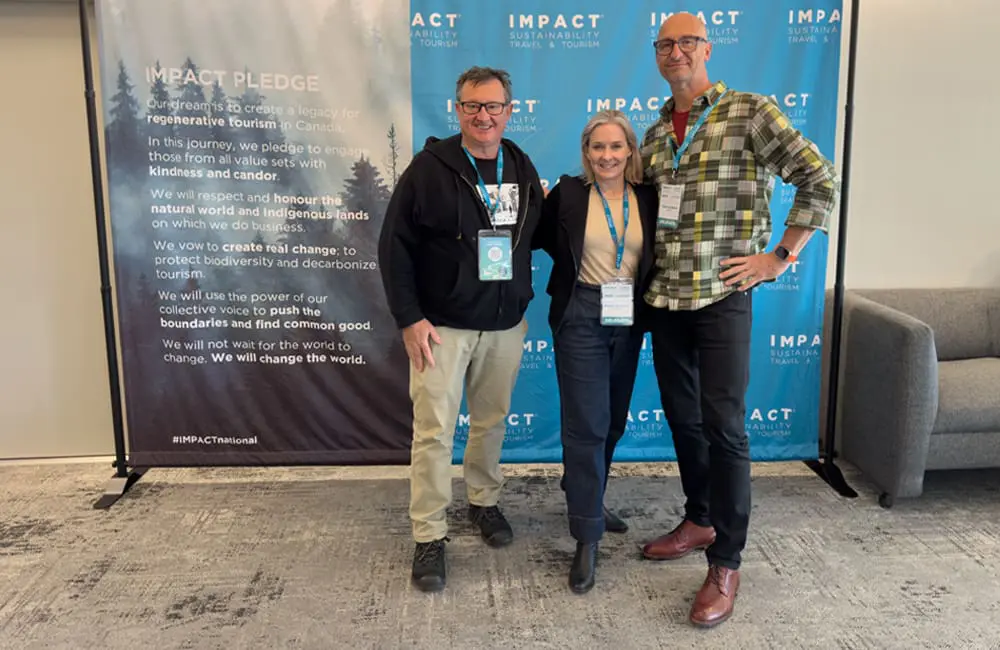
Travel advisor and wildlife photographer James Cracknell from Windsong Travel in Bellingen, NSW, was the winner of our Travel with Purpose Ambassador competition. He joined Liz Glover, Head of Marketing at Adventure World, and yours truly on this IMPACT-ful journey.
You can read the full story of our BC transformative adventure here.
Ready for some travel for good inspiration? My humble hope (and simple ask) is that you take at least one positive action from these top-line takeaways and spread the word.
1. Travel for good is not a spectator sport—be a changemaker
“If you work in travel, you are an environmentalist. Shouldn’t you be an activist too?” – Brad Parsell, Executive Director, Tourism Tofino, British Columbia.
Every experience you sell depends on a thriving planet. You have more influence than you realise, so step up and take responsibility for protecting it.
2. Sustainability is no longer a ‘choice’—it’s the industry standard
“Let’s get rid of ‘sustainable tourism’ as a definer because ALL tourism has to be sustainable.” – Isabel Hill, Former Director, National Travel & Tourism Office, U.S. Department of Commerce.
Sustainability isn’t a niche—it’s just good tourism. Let’s stop selling “eco” travel and start making responsible choices the norm.
If your business isn’t aligned with travel for good, it will be left behind.
3. Customers want to help—give them the chance
“Tourist behaviour changes when you give people the opportunity to help – not just tell them.” – Dr Aaron Tkaczynski, Senior Lecturer, University of Queensland.
Travellers often forget environmental information within 6-8 months, so create interactive experiences and itineraries that put responsible travel at the heart of their trips.
4. AI is here—use it to accelerate change
“Harness the power of AI. Use it, control it, and let it drive efficiency.” – Isabel Hill, Former Director, National Travel & Tourism Office, U.S. Department of Commerce.
AI can reduce emissions, cut costs, and streamline operations—if we learn to use it wisely.
5. Travellers are already making choices based on sustainability
“31% of Americans and 25% of Canadians avoided a travel option because it wasn’t sustainable.” – Costa Rica Tourism Study 2024.
Regenerative travel is the future. It’s not just about sustaining the planet—it’s about giving back and restoring communities and ecosystems for holistic, long-term benefit.
6. Indigenous tourism is the future—but it needs investment and support
“Indigenous tourism is regenerative tourism—it’s the healing element baked into culture.” – Brad Parsell, Executive Director, Tourism Tofino, British Columbia.
One in three international visitors to Canada wants Indigenous experiences, yet most don’t know where to find them.
If your business isn’t supporting First Nations-led tourism (including in our Australian backyard), you’re missing out.
7. The businesses that adapt will thrive—those that don’t will disappear
Travel for good is no longer a nice-to-have—it’s a business imperative. Governments are broke post-pandemic, and consumer expectations are shifting faster than businesses are adapting. If you’re still questioning whether sustainable practices make financial sense, consider this:
- Travellers are already avoiding destinations that aren’t sustainable.
- Investors and lenders are prioritising ESG (Environmental, Social, and Governance)-compliant businesses.
- Small tourism operators are demanding regulations to level the playing field.
Companies that refuse to adapt will lose relevance, lose funding, and eventually lose business. The question isn’t whether sustainability is too expensive—the question is whether you can afford to ignore it.
8. Younger generations want regenerative, not extractive, travel
“We need tourism to help humanity walk back from this abyss.” – Bob Sandford, Chair, Global Water Futures.
Millennials will make up 75% of the workforce by 2025. They aren’t looking for ‘bucket lists’—they want transformative travel for good that leaves a positive legacy.
But here’s the hard truth: sustainability officers with no decision-making power won’t drive change. Hiring a junior staffer to ‘handle sustainability’ is not a strategy—it’s a delaying tactic. True impact requires leaders with authority who can drive transformation from the top down, not the bottom up.
9. Tourism is the most powerful tool for reconciliation
“You have to understand the past to understand the future.” – Hon. Spencer Chandra Herbert, Minister of Tourism, Arts, Culture & Sport, British Columbia.
Indigenous tourism connects cultural preservation with wealth and wellbeing for communities—but Indigenous voices must lead it.
“Indigenous tourism isn’t just about economic growth—it’s about cultural survival. If we want real impact, we need Indigenous-led solutions, not just partnerships.” – Keith Henry, President & CEO, Indigenous Tourism Association of Canada.
10. We’re not running out of time—we’re out of time

“2024 was the hottest year on record. We are heading beyond 2 degrees to a 3-degree rise in global temperatures.” – Bob Sandford, Chair, Global Water Futures.
The climate crisis isn’t on the horizon—it’s here. As Wade Davis, Professor of Anthropology at UBC, put it:
“We are a fossil-fuel civilisation. To say we will go to zero by 2035 or 2050 is utterly naive. But that doesn’t mean we stop trying—it means we have to be smarter, faster, and more ambitious than ever before.”
Tourism must move beyond awareness and into radical action—now.
11. Cruise tourism must continue to evolve—or face restrictions
“The cruise industry is making strides towards sustainability, from cleaner fuels to onboard conservation initiatives. But if we want real impact, we need stronger regulations, local partnerships, and a commitment to truly regenerative tourism.” – Hege Vibeke Barnes, Director, Innovation Norway North America.
Destinations like Norway and Canada’s Arctic are introducing stricter cruise ship regulations. Australia must prepare for similar scrutiny.
12. Food is a bigger carbon culprit than you think
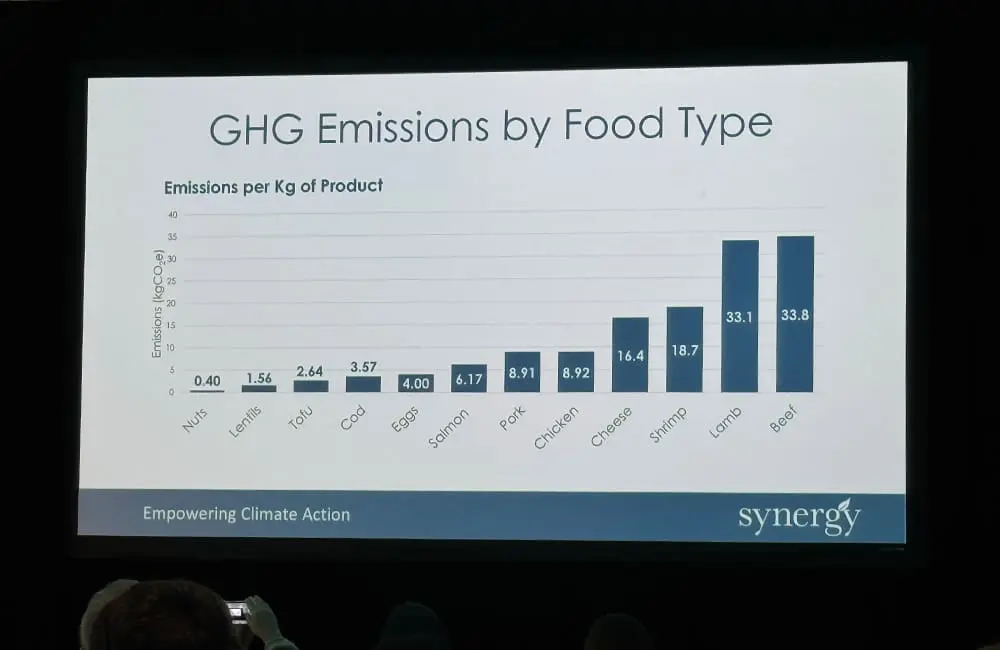
“A meat-heavy conference lunch can be 10x higher in carbon than a plant-based option.” – Fairmont Empress Hotel, Victoria.
If you cater events or hospitality, switching to low-impact menus is one of the fastest ways to cut emissions. Get rid of plastics and other unnecessary waste, and you will be on your way to doing good at events while setting an example for others.
13. Sustainability labels confuse travellers—so make it simple
“67% of travellers want universal eco-certification, but most don’t know what they mean.” – Booking.com Study.
Ditch jargon. Use storytelling, education, and clear, simple choices to help customers make better decisions.
14. ‘Last-chance tourism’ is a scam
“I disagree with playing with people’s emotions. Last chance doesn’t mean anything unless you wreck it.” – Dr Jennie Knopp, Senior Arctic Tourism Researcher.
Stop using fear-based marketing. Tourists are more inspired by hope than despair. Focus on what they can protect, not what they’ll lose.
15. Your role in travel is bigger than business
“Do not deny you’re not just people who make travel—you’re people who change lives.” – Mayor Marianne Alto, City of Victoria.
Travel isn’t just about moving people—it’s about transforming communities, economies, and the planet. The question isn’t whether you can make an impact—it’s whether you choose to.
Final thought: collaboration is the only way forward
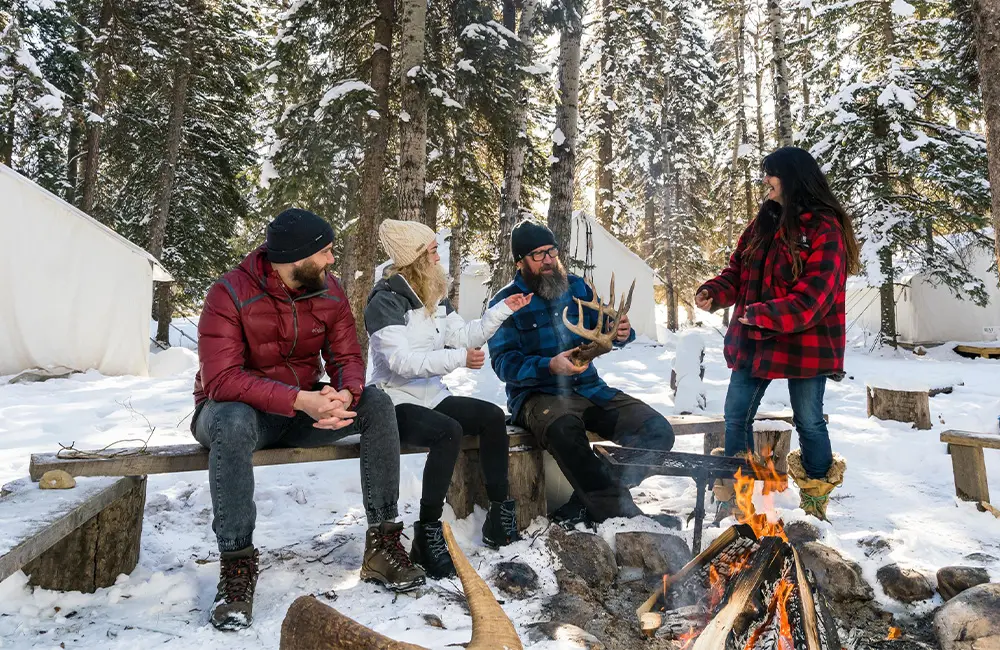
“A good place to live is a good place to visit.” – Innovation Norway.
Responsible tourism isn’t about limiting growth—it’s about building destinations where both locals and visitors thrive.
And as a Professor of Anthropology at UBC, Wade Davis reminds us:
“However dire the prognosis, people get on with their lives. The language of doom and despair has never inspired action. If we want to change the future, we must first inspire people to believe in it.”
This is not a competition. Collaboration is everything. The only way forward is to work together in travel.
Hope, not fear, drives action, and the time for action is now.
Making Travel Matter
Adventure World promotes ‘Travel with Purpose’ to leave a positive impact on people, the planet, and wildlife through its tailor-made trips. It’s about providing authentic travel opportunities that benefit destinations and communities and encouraging others to be responsible travellers, too.
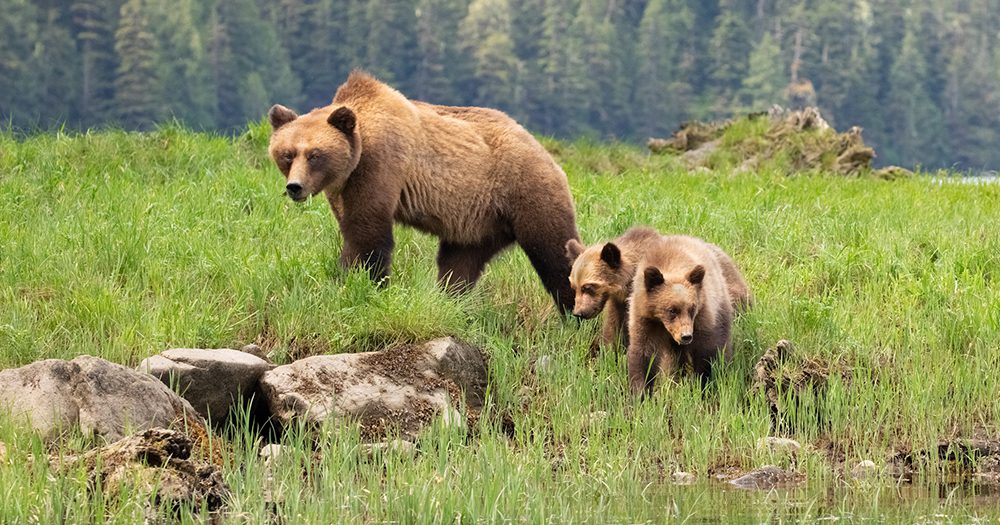
As part of The Travel Corporation (TTC), Adventure World offers MAKE TRAVEL MATTER® Experiences that travellers can add to their trips to support local businesses and enterprises in their destination.
In British Columbia, MAKE TRAVEL MATTER® Experiences include a First Nations-led Grizzly Bears of the Wild tour on Vancouver Island and the Homalco Wildlife & Culture Tours’ People, Water, Land – an Indigenous village and whale-watching experience.
Find out more at adventureworld.com
Start your own Super Natural British Columbia adventure at HelloBC.com
This article is brought to you by:
